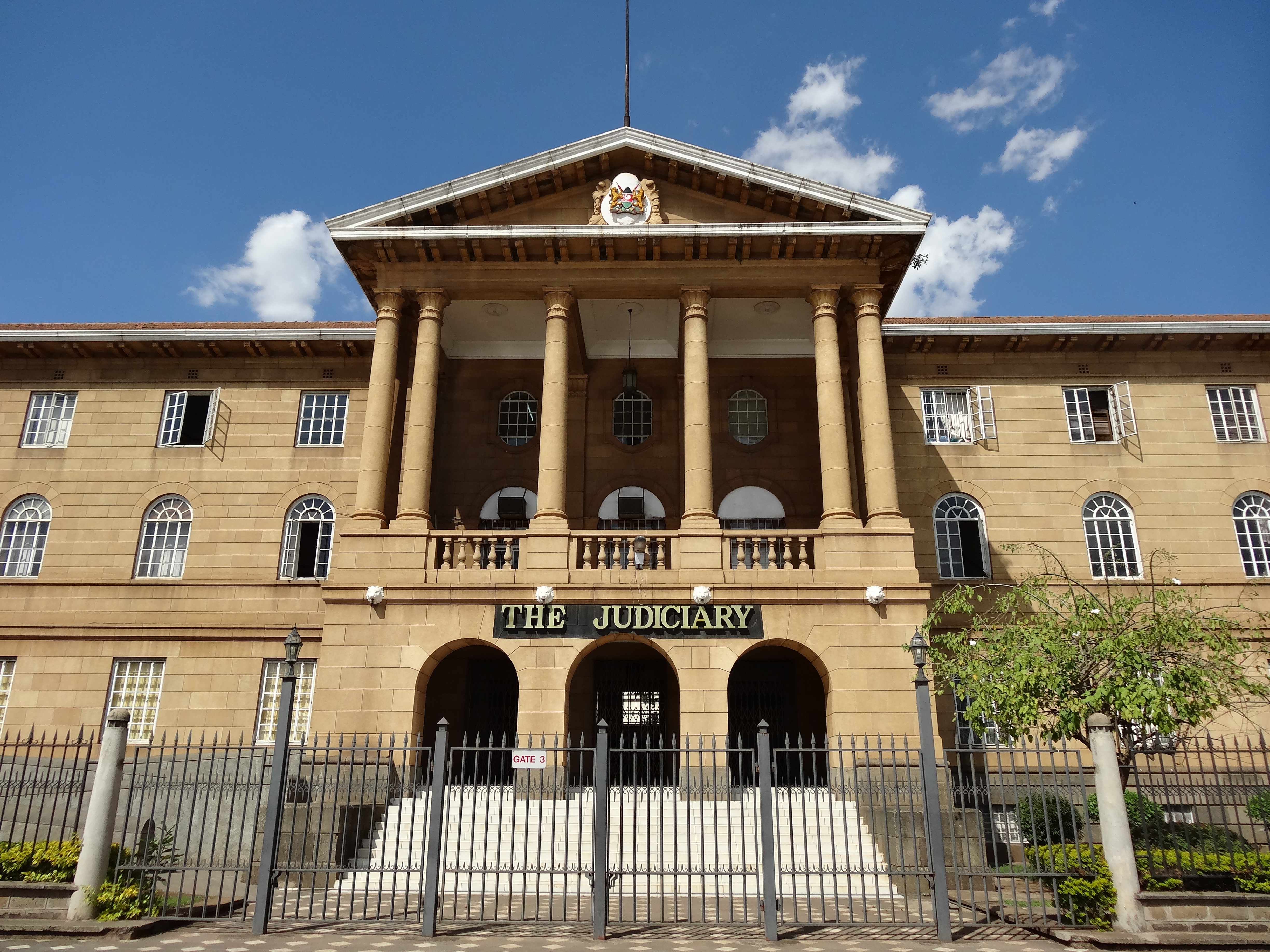Researching the enigma of de facto abolition: Notes on Kenya and Belize
Posted:
Time to read:
The global demise of the death penalty has transformed from a distant goal to an oft-predicted future, and a notable decrease in retentionist jurisdictions since the 1990s gives such a prediction a glimmer of truth. Yet a triumphal, teleological history of capital punishment remains problematic. For instance, Amnesty International’s latest tally of (known) worldwide executions demonstrates a rise of over 50% from 2021 (579) to 2022 (883). Some countries, like Myanmar, Qatar and the Democratic Republic of the Congo, have resumed (or threatened to resume) executions despite an established practice to the contrary in preceding decades.
In other words, the global abolitionist movement has made immense progress—but such progress is not unidirectional. Abolitionist de facto (ADF) states remain a pressing challenge for those pursuing a world united by capital punishment’s obsolescence. With Zimbabwe expected to pass legislation for formal abolition imminently, just under 40 jurisdictions meet the UN standard (a ten-year execution moratorium) for ADF status.[1] The maintenance of the death penalty without executions ought not be ignored by scholars and advocates, however: ADF status has the potential to (1) reinforce capital punishment’s symbolic and moral legitimacy and (2) harm criminal defendants (by, for example, increasing guilty pleas). As Daniel Cullen notes, academic inquiry should therefore “expand understandings of the varied factors which may shape states’ ADF status, … take on the question of why states remain ADF, and encourage wider discourse on this topic.” A new collaborative research project between the DPRU and the Death Penalty Project (DPP) seeks to achieve these aims, and its early efforts have centred on Kenya and Belize.
The Kenyan death penalty largely began with British colonisation, and its use of hanging as a tool of racialised, imperial governance (see the work of Stacey Hynd and Andrew Novak [2]). In the post-independence era, the Kenyan state killed almost 300 of the approximately 3,500 people it sentenced to death. Kenya’s last execution occurred in 1987; nevertheless, judges hand down death sentences today. In fact, the Kenyan judiciary has developed, then subsequently undermined, restrictions to the death penalty. The Court of Appeal declared mandatory capital punishment unconstitutional in Mutiso v Republic (2010).[3] This was later conflicted by a contrary Court of Appeal ruling in Mwaura v Republic (2013).[4] The Supreme Court attempted to resolve the split in Muruatetu v Republic (2017).[5] With reference to similar case law from Malawi and Uganda, Muruatetu’s holding affirmed the Mutiso interpretation (rendering a mandatory death penalty unconstitutional). Yet the court’s subsequent directions in 2021[6] restricted the breadth of Muruatetu, stating that the decision applies only to the sections of the criminal code contested by the appellant (those related to murder, not to offences of robbery with violence). Meanwhile, Kenyan legislators have frequently proposed formal abolition without successfully passing bills to this end; abolitionist legislation failed in 2007, despite government support, and again in 2015. Some politicians have attributed their voting choices to the public popularity of capital punishment. Such reasoning is dubious today: the Kenyan public, if ambivalent, does not overwhelmingly favour retention.

Though scholarship concerning executions in nineteenth-century British Honduras (as colonial Belize was known) is sparse, the logwood and mahogany industries therein entailed slave labour and capital punishment.[7] Unlike Kenya, however, twentieth-century British Honduras and the post-independence (1981) Belizean state rarely imposed death sentences (28, from 1979-85) and more rarely executed (four, from 1969-85). Belize last killed an offender, Kent Bowers, in 1985; a petition for his clemency garnered 2,500 signatures. The Judicial Committee of the Privy Council (JCPC), the once final court of appeal for the Commonwealth Caribbean, proved instrumental to the continued limitation of capital punishment in Belize. In Pratt and Morgan v Attorney-General (1993),[8] the JCPC ruled that more than five years’ delay in completing a capital sentence constituted cruel and inhuman punishment; Lewis and Others v Attorney-General (2000)[9] confirmed a right to clemency for the convicted and aligned the commutation process with international fairness standards. Later, Reyes v R (2002) [10] struck down the mandatory death penalty. Whilst Belize has demonstrated reluctance to incorporate these standards at times, the nation’s last death sentence was passed in 2005, and, by 2015, death row was empty.[11]
Kenya and Belize’s similarities, and differences—namely, whether their ADF status entails death sentences—shape their prospects for formal abolition. The current situation in Kenya appears promising. On top of growing consensus on the issue in East African law, DPP reports depict strong support for abolition amongst Kenyan opinion formers, as well as openness from the public to embrace abolitionist government policy. The strain that continuing to apply death sentences places on the Kenyan criminal justice system also encourages abolition. Kenya cannot guarantee fair trial protections for many capital defendants, and its prisons incarcerate the convicted in unacceptable conditions. Presidents have consequently commuted the sentences of many of those on death row to life imprisonment, including in 2009, 2016 and 2023. Albeit ameliorative, such mass commutations are insufficient. They reinforce the symbolic authority of the state over life (and, in this way, mimic colonial pardon practices). The current Kenyan ADF regime—unconvincing to the public, burdensome to the state, reliant on spasmodic pardons—should inspire politicians to crystallise the socio-legal momentum towards full, formal abolition. A 2023 Private Members’ Bill, intended to amend the penal code to this effect, is one possible route; it is yet to be debated by the National Assembly.

Belize’s short-term outlook for abolition is chequered. Notably, capital punishment has become an issue with low salience in the country. Thus, perceptions of uncontrolled violence (the homicide rate is relatively high at 25 per 100,000), the inevitability of revenge killings, and the presence of gangs have not increased the attractiveness of the death penalty amongst the Belizean press and public. Calls to address violence by resuming executions are rare, especially in comparison to other states in the Commonwealth Caribbean. However, low salience simultaneously discourages abolitionist opinion formers and politicians from challenging the ADF status quo: as Hood and Seemungal (2020) document, these figures are reluctant to act without overwhelming public support. Hood and Seemungal further observe that, despite some regional collaboration via the JCPC and other judicial venues, Caribbean leaders are unresponsive to the international consensus on abolition. For example, Caribbean nations (ADF Belize included) usually reject the UN motion for a global moratorium on capital punishment and instead back a contradictory sovereignty amendment. (As Jamaica, co-sponsor of the 2022 amendment, expressed, “it is the sovereign right of each State to decide its own judicial and political systems.”) Sovereignty may uniquely concern Belize—where the death penalty was historically used to affirm territorial integrity and where territorial integrity is today contested by Guatemala. Whilst Belize must surmount appreciable obstacles to reach full abolition, recent social and legislative trends are cause for optimism. The push for Caribbean republicanism has popularised decolonial rhetoric, which abolitionist advocates can capitalise upon. And legislation passed by the National Assembly under the current Briceño administration indicates a body receptive to progressive criminal justice measures.
Kenya and Belize betray commonplace assumptions about ADF status: that it is worth little academic scrutiny, and that it is merely a step in-between retention and formal abolition. Rather, through such jurisdictions, scholars and advocates encounter themes significant (if familiar) for understanding capital punishment, like colonial history, the influence of regional and international law, and the difficulty and promise of legislative change. As seen above, these themes (and others) express themselves differently across contexts, and they shape how a nation progresses from active executor, to ADF, and, indeed, to fully abolitionist.
 |
Jackson Foster researches interpersonal harm, the evolution of criminal law and the death penalty, both past and present. He completed an MSc in Criminology and Criminal Justice at Exeter College, University of Oxford, and an MA in Medieval and Early Modern Studies at Durham University on a two-year Marshall Scholarship. Before moving to England, Jackson graduated summa cum laude from the University of Alabama, where he studied history and religion. He is now a Program Specialist in the Research Division of the U.S. National Endowment for the Humanities. |
[1] The definition of ADF status is contested. The UN and Amnesty International diverge on whether—along with their ten-year moratorium—a state must have a ‘policy or established practice’ of not executing.
[2] Stacey Hynd, ‘Murder and Mercy: Capital Punishment in Colonial Kenya, ca. 1909-1956’ (2012) 45 The International Journal of African Historical Studies 81; Andrew Novak, The African Challenge to Global Death Penalty Abolition International Human Rights Norms in Local Perspective (Cambridge University Press 2016).
[3] Mutiso v Republic (2008) Criminal Appeal 17 of 2008 (Court of Appeal of Kenya).
[4] Mwaura v Republic (2013) Criminal Appeal 5 of 2008 (Court of Appeal of Kenya).
[5] Muruatetu v Republic [2017] KESC 2 (KLR) (Supreme Court of Kenya).
[6] Muruatetu v Republic (Directions) [2021] KESC 31 (KLR) (Supreme Court of Kenya).
[7] Because of the lack of plantation slavery in British Honduras, the colony did not execute to the same extent as others in the Caribbean (like Jamaica). Nonetheless, the threat—and realisation—of capital punishment was integral to disciplining the slave population. Much of the following analysis is forthcoming as part of the author’s forthcoming article in the DRPU Research Paper Series.
[8] Pratt and Morgan v Attorney General for Jamaica (Jamaica) [1993] UKPC 1 (Judicial Committee of the Privy Council).
[9] Lewis and Others v Attorney General of Jamaica (Jamaica) [2000] UKPC 35 (Judicial Committee of the Privy Council).
[10] Reyes v R (Belize) [2002] UKPC 11 (Judicial Committee of the Privy Council).
[11] In 2016, the Belize Court of Appeal declared mandatory life sentences without parole unconstitutional, too: August v R (2016) Criminal Appeal No 22 of 2012 (Court of Appeal of Belize). Subsequent legislation provided parole eligibility for those under life imprisonment.
Share:
